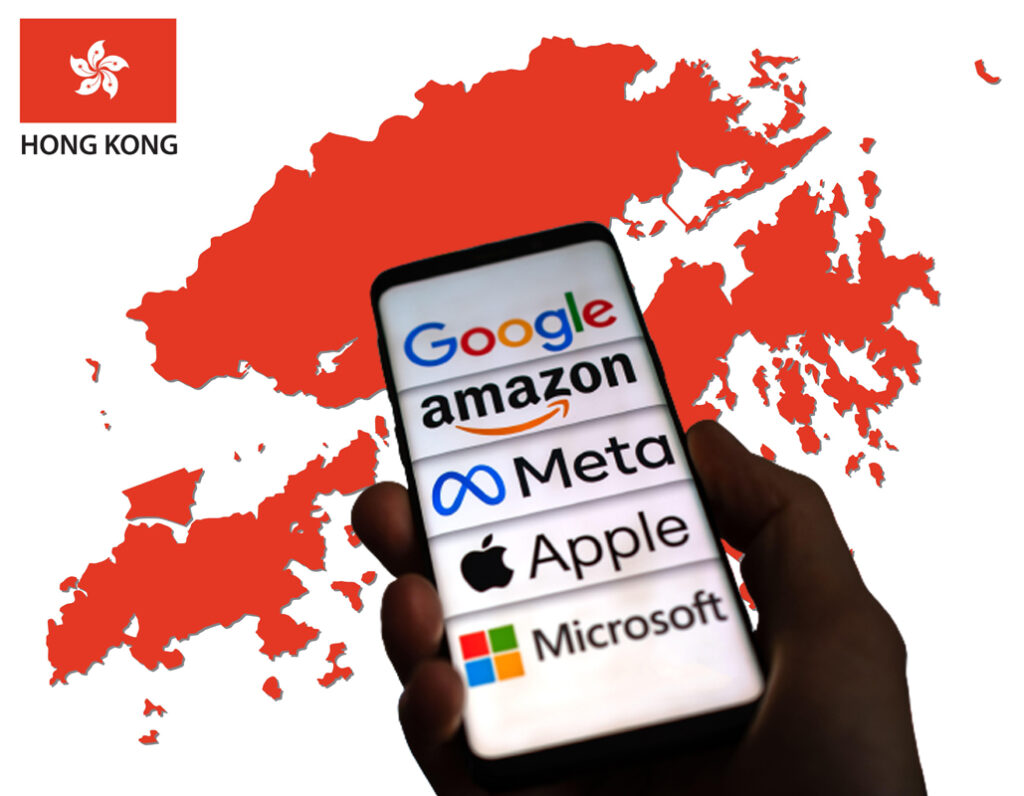Google, OpenAI, and Microsoft have been blocking access to AI chatbot services in Hong Kong in recent months.
In the case of Open AI, which operates Chat GPT, Hong Kong and mainland China were placed on the list of “restricted countries” alongside North Korea, Syria, and Iran.
These companies refused to answer why they blocked the use of chatbots in Hong Kong. However, the WSJ explained that this change is not irrelevant to the situation in which U.S. tech companies have become more inclined to treat Hong Kong as one of China’s cities, not as a global financial and business hub.Hong Kong’s Internet environment is not the same as before. Apple is reportedly filtering out “suspicious” websites with China’s Tencent in Hong Kong. Internet users protested that social media (SNS) mastodon, which has emerged as a rival to Twitter, and even legal sites have been blocked, but “filtering” is still ongoing. Websites that Tencent blocked from accessing in Hong Kong also included U.S. cryptocurrency exchange Coinbase and coding community GitHub.

Disney removed two episodes of the animated “The Simpsons” from Hong Kong’s online video service (OTT) that mentioned forced labor camps in China and the 1989 Tiananmen pro-democracy protests. According to an official familiar with the matter, the move is due to concerns over the violation of the Hong Kong National Security Law enacted in 2020.Attention is also being paid to the results of the Hong Kong court’s request for a ban on singing “Glory to Hong Kong” scheduled for the 12th.
The request to virtually ban “Glory to Hong Kong,” which anti-government protesters like to sing, also included blocking 32 related YouTube videos. It is the first time that a U.S. tech company has been involved in Songsa in earnest over politically sensitive content in Hong Kong.George Chen, who served as the head of the Chinese rental at Facebook’s parent company Meta, predicted that if the Hong Kong court accepts the blocking request, the authorities’ legal action against U.S. tech companies could be “bottled up.”Some point out that Hong Kong’s Internet environment has become closer to mainland China, where the Internet censorship system “Tanli Firewall” is located
Some Hong Kong residents are bypassing the virtual private network (VPN) as in mainland China as AI chatbots are blocked. Even a Hong Kong government spokesman emphasizes that it is still possible to use chatbots as alternative means such as VPN, saying that he respects Google’s “restricting access to Hong Kong.”The outflow of IT personnel is also continuing. Hong Kong, with a population of 7.5 million, is not a major market for U.S. tech companies in itself, but due to its unique free information distribution environment, companies and IT workers have chosen Hong Kong as their home base.However, over the past three years, tens of thousands of IT personnel have left Hong Kong, and one of the reasons is the contraction of freedom of expression.According to a survey released in March this year by the Hong Kong American Chamber of Commerce, only 38% of the respondents said they would have free access to the Internet and information platforms in Hong Kong over the next three years.Microsoft is also reportedly planning to move AI experts from Beijing to North America, not Hong Kong. Microsoft Research Asia (MSRA), which has also been called a “star training center” for producing a number of talented people leading the Chinese IT industry, will exclude key AI experts from China.China’s state-run Global Times commented on a report by the British Financial Times (FT) that Microsoft has begun the process of transferring high-quality AI personnel to Vancouver, Canada, saying, “It is a pure exaggeration that a research institute ‘threatens’ China’s talent development.”
Sophia Kim
US ASIA JOURNAL

